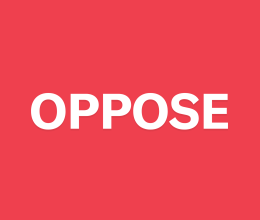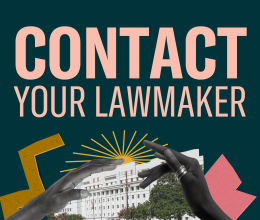
Your right to express yourself:
- The First Amendment of the U.S. Constitution guarantees freedom of speech and freedom of press to all people, including students.
- You have the right to speak out and express your views and identity. This includes the right to share your opinions on controversial issues like guns or abortion, to speak critically of your school's policies, to hand out flyers or petitions, to wear expressive clothing, and to openly express your sexual orientation and/or gender identity.
- However, you school can restrict speech that is lewd, vulgar, or disruptive, but simply disagreeing with your position or thinking it too controversial is not enough.
Your right to protest:
- Schools can typically discipline you for missing class as long as it is not because of the content of your protest. The punishment should also be the same as what a student would receive for missing class for any other reason.
- Outside of school, you enjoy the same rights to protest and speak out as anyone else.
Your right to privacy:
- School officials and police officers must have a "reasonable suspicion" that searching will turn up evidence of violations or law breaking in order to search your belongings.
- Searches cannot be based on a rumor, the color of your skin, or the clothes you are wearing.
- You can always refuse consent to searches, but you should not try to physically resist a search.
Your right to dress:
- Public schools can have dress codes, but federal law says dress codes can't treat boys and girls differently, force students to conform to sex stereotypes, or censor particular viewpoints.
- If your school allows students to wear t-shirts, buttons, and other accessories, then they cannot ban only certain kinds. Your clothing can be a form of expression, and courts have upheld that it is not disruptive to wear things like an anti-war armband or LGBT shirt.
Your right to equal treatment:
- Public schools can't stop you from bringing a same-sex date to prom or homecoming, nor can they prevent you from participating in student lead-outs or other activities because of your date's sex or gender.
- Your school's policies should be gender-neutral, so rules against something like "revealing" clothing shouldn't be enforced only against girls or more harshly against certain groups of girls, like girls of color.
- Your school's policies should also be content-neutral, meaning that they treat all discipline, dress codes, and other student activities the same, regardless of whether they agree or disagree with the message.

